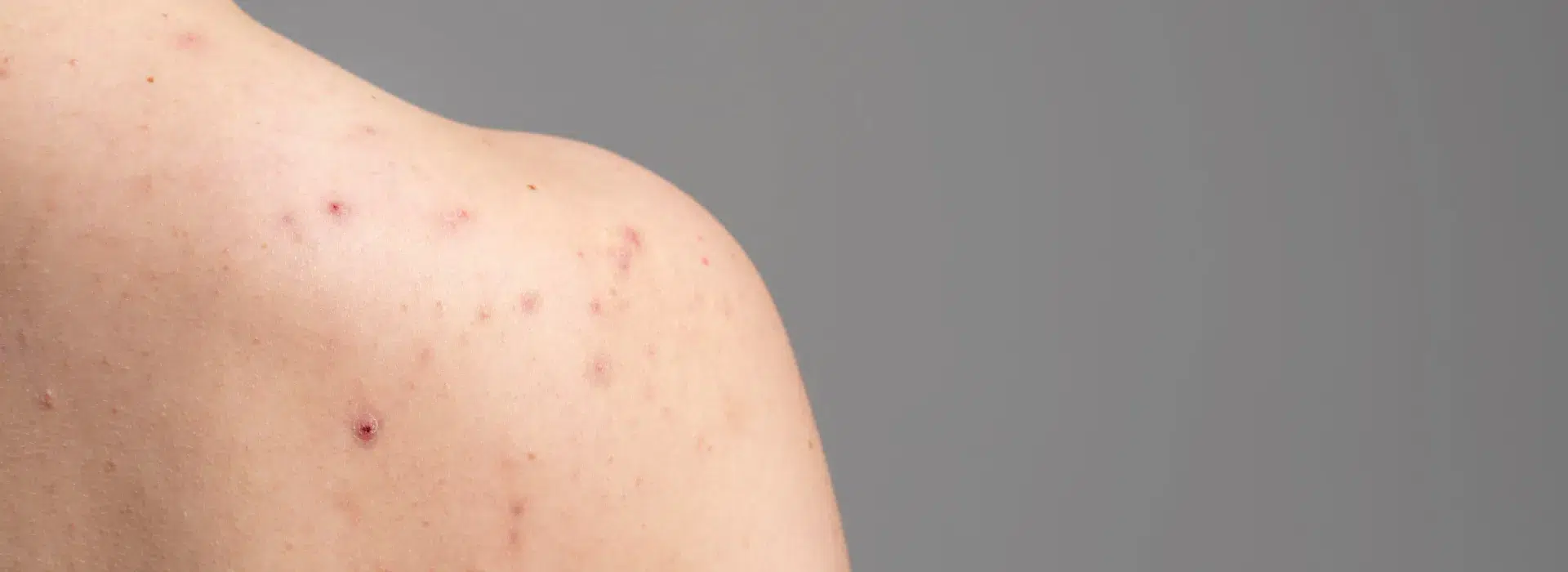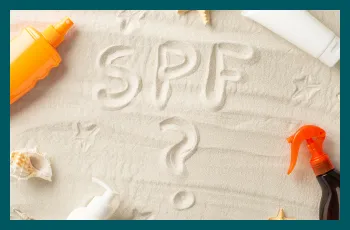Red spots on skin: causes & when to worry?
Written by the editorial staff writer at Hola. Medically Reviewed by Dr Gosagan Gopalakrishnan, BSc (Hons), MBChB, DRCOG, MRCGP, FRACGP and Dr. Ammar AL-ANI, MBChB, CCBST, AMC. Blog updated on 05 November, 2025. Originally published on 04 December, 2024.

Contents

Overview
Have you observed small red patches emerging on your skin? You’re not the only one; they’re quite common and, in many instances, not a cause for concern. Nevertheless, some spots may indicate irritation, an allergic reaction, or even a more serious health condition. Here’s how to differentiate between a harmless skin anomaly and when it’s advisable to seek professional guidance.Causes
Numerous factors could lead to the sudden appearance of red spots. Some are everyday occurrences, while others might require a closer examination.- Allergic reactions – Contact with certain soaps, detergents, specific fabrics, or plants can provoke itchy, red spots (known as contact dermatitis). These typically resolve once you eliminate the trigger.
- Heat rash – A common issue during hot Australian summers. Blocked sweat ducts can result in small red or pink bumps, often accompanied by a prickly sensation in skin folds or beneath clothing.
- Petechiae – Small red or purple marks resulting from bleeding underneath the skin. Unlike other rashes, they do not fade when pressed. If they appear suddenly, it may necessitate immediate medical attention.
- Keratosis pilaris – Often referred to as “chicken skin,” these benign rough bumps frequently appear on arms, thighs, or cheeks due to a buildup of keratin.
- Acne and rosacea – Acne can result in inflamed red spots, while rosacea contributes to facial redness and visible blood vessels.
- Infections – Viral infections (like measles), bacterial infections (like impetigo), or fungal infections (like ringworm) can manifest as red spots or rashes.
- Autoimmune disorders – Conditions like psoriasis or lupus can lead to red, patchy skin, often accompanied by symptoms such as joint pain or fatigue.
- Vascular concerns – Some spots associated with blood vessel or clotting issues (like purpura) do not blanch when pressed. These should be evaluated by a healthcare provider.
Minor causes vs. serious causes
| Minor causes | Serious causes |
| Heat rash – small red/pink spots in hot, humid weather | Petechiae / Purpura – tiny red/purple dots that don’t fade when pressed |
| Allergic reactions – itchy patches from soaps, fabrics, detergents | Infections – measles, impetigo, ringworm, or other viral/bacterial rashes |
| Keratosis pilaris – rough “chicken skin” bumps on arms or thighs | Autoimmune conditions – psoriasis or lupus with fatigue, joint pain |
| Mild acne or rosacea – inflamed or red spots on face/back | Skin cancer signs – spots that change in size, colour, or don’t heal |
| Dry or irritated skin – temporary red patches from weather or products | Severe allergic reaction – sudden widespread rash with swelling or breathing issues |
Home remedies
For mild situations, some home treatments can alleviate irritation and promote skin healing:- Cold compress – Helps reduce swelling, redness, and itchiness.
- Oatmeal bath – Calms discomfort from rashes, allergies, or eczema.
- Moisturiser – Keeps skin hydrated and mitigates rough or dry areas.
- Aloe vera gel – Soothes inflamed or itchy spots, especially following sun exposure.
- Avoid triggers – If you find that certain soaps, fabrics, or skincare items provoke a reaction, consider replacing them.
Experiencing these symptoms? Speak with a doctor within 15 minutes.
When to see a doctor?
Seek medical attention if you observe:- Sudden widespread blemishes – This may indicate an infection or an allergic reaction.
- Blemishes that don’t disappear when pressed – This could suggest issues with blood vessels or clotting.
- Painful, filled with pus, or itchy blemishes – These are often associated with infections.
- Other symptoms, such as fever, fatigue, or joint pain, may indicate an underlying condition.
- Persistent or evolving blemishes – Spots that remain for a long time or change in colour or size should be evaluated to exclude skin cancer or chronic diseases.
How Hola Health can help
Are you unsure whether your red blemishes are benign or more serious? With telehealth, you can avoid the waiting room and receive quick guidance from home. Through Hola Health, you can:- Consult with an Australian-registered GP online for a skin examination.
- Get a online prescriptions for creams and or antibiotics if necessary.
- Get referrals to a dermatologist for additional treatment.
- Access medical certificates if your condition requires you to take leave from work.
Conclusion
Most red spots on the skin are benign and may fade over time or with simple care, but some can indicate an infection, immune condition, or other underlying health issues. The critical factor is to observe how the spots behave, whether they vanish, spread, or appear with additional symptoms like fever, pain, or tiredness. With Hola Health's telehealth service, you can connect with an Australian doctor promptly and from home, providing you with expert guidance and reassurance.FAQs
What are the frequent causes of red spots on the skin?
Red spots may arise from allergies, heat rash, acne, keratosis pilaris, infections, or occasionally more severe conditions like petechiae or autoimmune disorders.How can you determine if a red spot is serious?
Spots that do not fade when pressed, spread rapidly, or emerge with fever, fatigue, or pain should be taken seriously. Persistent or changing spots also warrant a medical assessment.Should I consult a doctor for red dots on my skin?
Yes, if the spots appear suddenly, are painful, do not fade, or persist for weeks without improvement. It is preferable to seek a professional evaluation than to self-diagnose.Are petechiae a cause for concern?
Petechiae are tiny red or purple dots that do not fade when pressed. They may indicate problems with blood vessels, clotting, or serious infections and should always be assessed by a physician.Can red spots resolve on their own?
Some may such as heat rash, mild allergic reactions, or keratosis pilaris. However, infections or systemic causes typically require intervention from a healthcare professional.15 minutes, anytime, anywhere.
What we treat
- Cough
- Nausea & vomiting
- Fever
- Hayfever
- Fatigue
- Sore throat
- Acne
- Hair loss
- Gout
- Eczema
- Rosacea
- Sunburn
- UTI
- Erectile dysfunction
- Contraception
- Morning sickness
- Morning after pill
- Prostate health
- Anxiety
- Depression
- Stress
- Grief & loss
- Antidepressants
- Premature ejaculation
- Asthma
- Blood pressure
- Blood thinners
- Diabetes
- Cholesterol
- Migraines & headaches
- Allergies
- Body ache
- Heartburn & reflux
- Sleep disorder
- Pain relief
- Gastro
Related Articles
Disclaimer
This blog is for general informational purposes only and does not indicate that Hola Health provides all treatments or preventive measures mentioned. It is not intended to be a substitute for professional medical advice. Always seek the guidance of your doctor or other qualified health professional with any questions you may have regarding your health or a medical condition. For emergencies please immediately contact 000. Any medical topics discussed are intended to educate, not to imply availability through Hola Health.
 Facebook
Facebook  X
X  Copy Link
Copy Link



